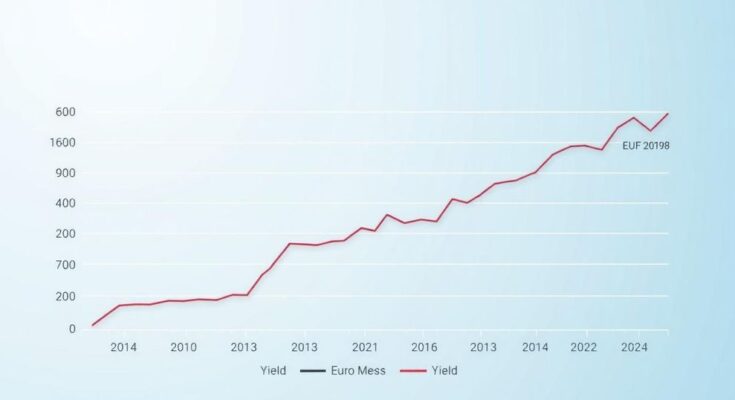Nigeria’s Eurobond yields have risen as foreign portfolio investors trim their holdings amidst a risk-off climate. The Central Bank of Nigeria maintains its Monetary Policy Rate, exercising caution to ensure market stability. The bearish sentiment, spurred by declining oil prices and disappointing job data, prompts analysts to predict sustained negative outlook without favorable developments.
Foreign portfolio investors (FPIs) have reduced their holdings in Nigeria’s sovereign Eurobonds, driven by a risk-off sentiment in the international market. The bearish outlook stems from ongoing evaluations by portfolio managers regarding critical developments in Nigeria amid shifting global market conditions. As FPIs assess their exposure, the Eurobond yields have begun to rise, reflecting these investor sentiments.
The Central Bank of Nigeria (CBN) decided to retain the Monetary Policy Rate (MPR) and other crucial parameters during its February meeting, opting for a cautious wait-and-see approach to gauge the impact of previous rate hikes. By maintaining this position, the CBN aims to prevent disruptions in the market’s recent stability, while allowing earlier tightening measures to take effect, as noted by Erad Partners Limited in their commentary.
Global economic trends have also influenced Nigerian Eurobond sentiment. The U.S. economy has shown signs of strain, exacerbated by the protectionist policies of the current administration. President Donald Trump’s approach has created uncertainty, affecting investor confidence in various markets, including Nigeria’s Eurobond tract.
On a recent trading day, profit-taking activities were observed in the Eurobond sector. Although the market initially reacted positively due to speculation of potential tariff relief, the mood shifted negatively following a decline in oil prices and a disappointing jobs report from the private sector. The ADP reported the addition of only 77,000 jobs in February, significantly below predictions, raising concerns regarding the economic outlook.
Consequently, the average mid-yield for Nigerian Eurobonds saw an increase of 5 basis points, reaching 9.02%. Selling pressure was widespread, particularly affecting shorter maturities, with the Nov-25 maturity rising 4 basis points. Analysts anticipate that this adverse sentiment may persist unless positive developments are observed in either local or international spheres.
In February, the global fixed-income landscape experienced substantial changes due to various factors, including geopolitical tensions and modifications in monetary policy. According to CardinalStone Partners Limited, bond yields have decreased across major economies, closely mirroring movements within U.S. Treasury bonds. The 10-year Treasury yield fell to a noteworthy low of 4.2%, marking a significant turn from previous trends.
Investor focus has shifted from inflation risks linked to tariff policies to the implications of weakening economic indicators. The February ISM manufacturing survey indicated an unexpected contraction in key metrics, suggesting potential softening in economic performance. As such, a cautious stance among investors has led to reduced risk-taking and adjustments to portfolios previously held in the Eurobond market.
Nigeria has also turned down bids due to excessive demand for local bonds, potentially indicating a tightening of liquidity in the domestic bond market, further contributing to the strategic shifts in investment positioning.
The dynamics surrounding Nigeria’s Eurobond market reflect a complicated interplay between global economic trends and domestic monetary policy. FPIs are retreating due to bearish sentiments, while the CBN maintains a measured approach to interest rates to foster stability. The recent U.S. economic data and geopolitical tensions have further aggravated market conditions, leading to increased yields on Nigerian Eurobonds. Overall, investor caution prevails amidst uncertainties, emphasizing the need for favorable developments in both local and international arenas to regain confidence.
Original Source: dmarketforces.com




